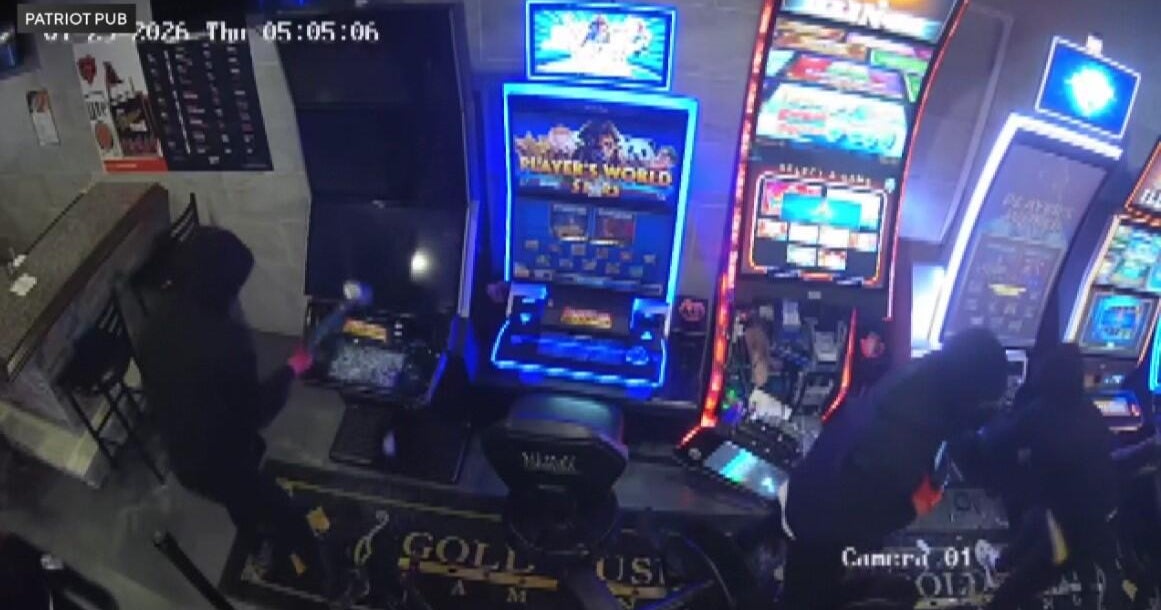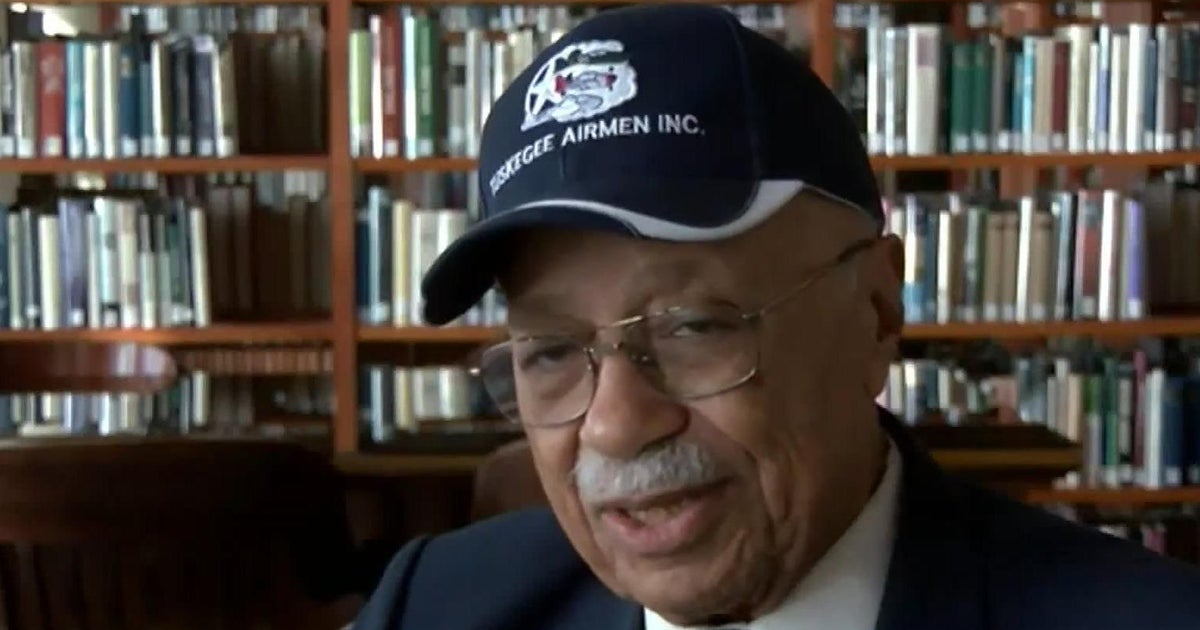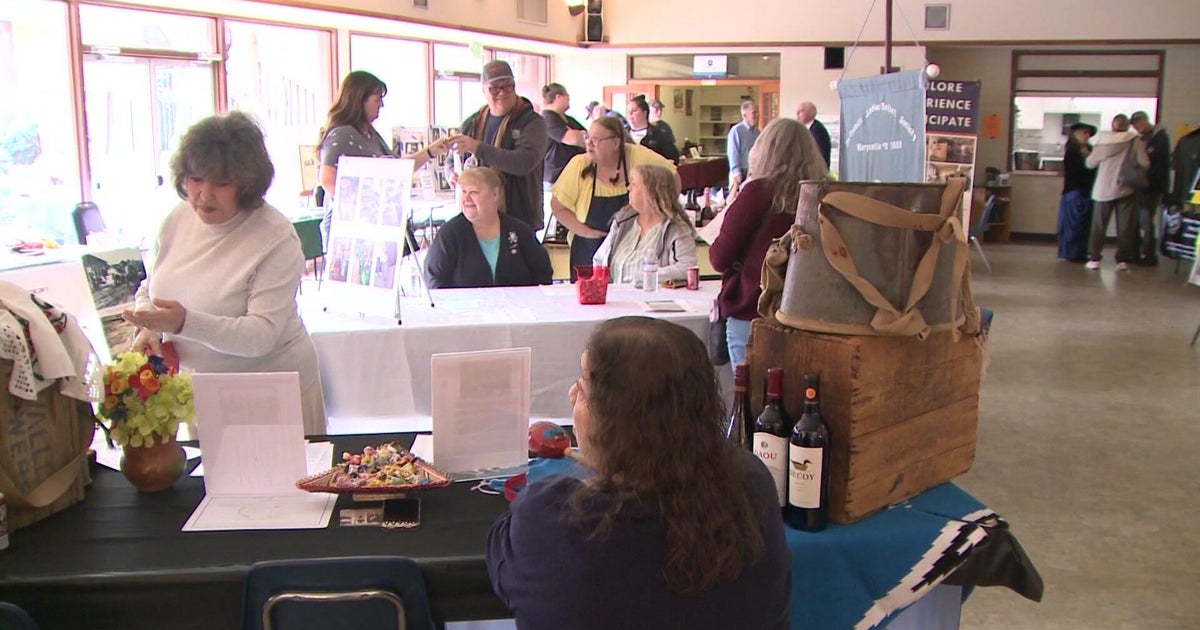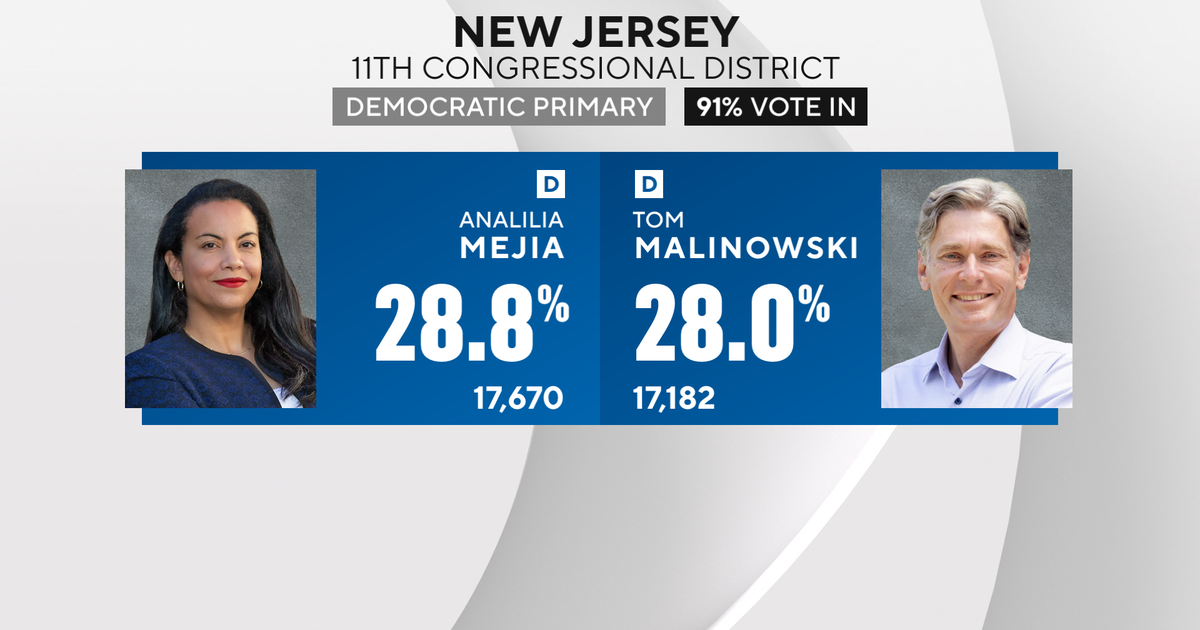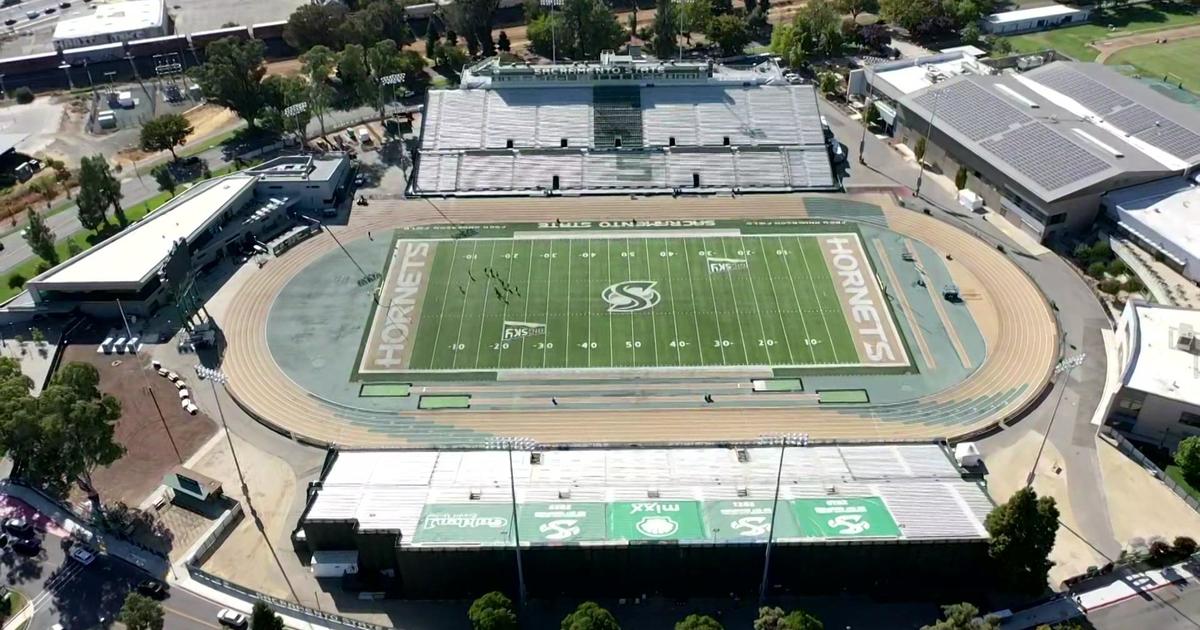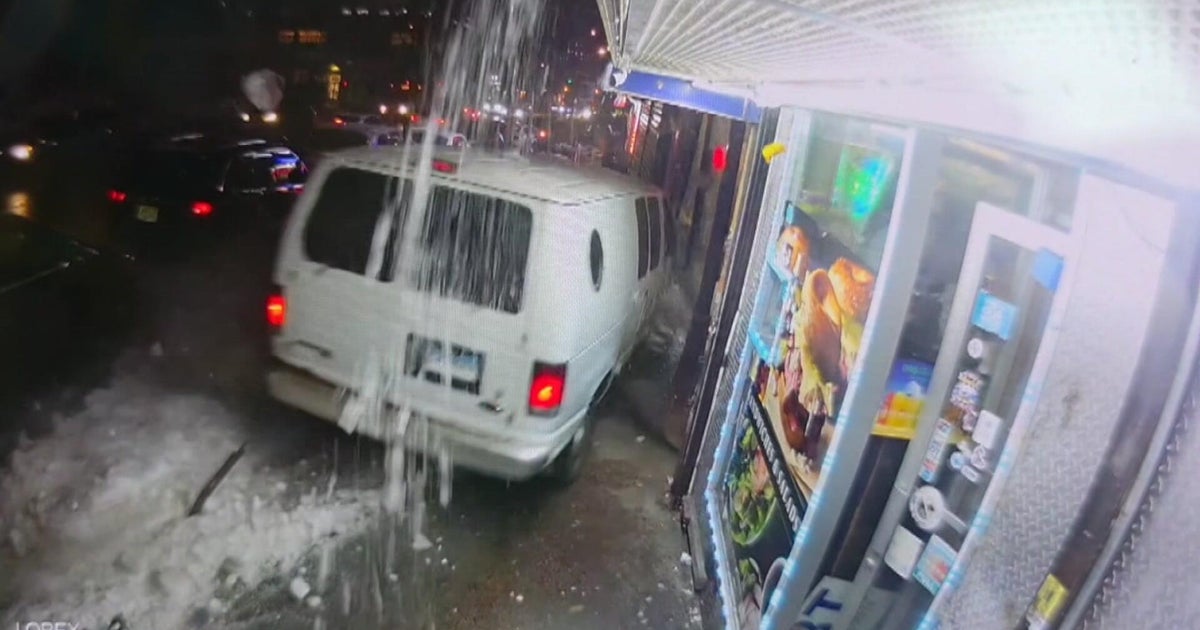Charitable Gambling Continues Its Steady Decline
WINONA, Minn. (AP) -- Cheryl Jick stands in the far corner of Schniepp's Bar as the bartender rifles through a clear plastic box filled with white cards. Pulltabs in hand, Jick rejoins a group of women at one of the bar's tables -- co-workers from TRW Automotive.
Earlier, the friends had pooled about $20 together for pulltabs and came out with $108 in winnings.
Jick, 50, is taking another shot at a big winner.
"I'm the pull-tabs queen," she says.
Players spent nearly $11.3 million on charitable gambling in Winona County in fiscal year 2010, and if the county follows statewide trends, more than $10 million of that total came from pulltabs. Eighteen registered organizations sell the popular game of chance at more than 50 sites in the county.
Pulltabs are far more than a bar-time amusement. More than $550,000 in gambling proceeds was donated last fiscal year to charitable causes ranging from area baseball teams and Boy Scout troops to local benefits for the ill and injured. Some even goes to city governments.
But that total has fallen more than 30 percent in just two years, part of a statewide decline in charitable gambling in the past decade. With revenues falling and hundreds of groups turning in their licenses, charitable gaming in Minnesota is at a critical juncture -- and with it, the many organizations who rely on residents across the state to take a chance on a pull tab or two.
"Very definitely we're at a crossroads," said King Wilson, executive director of Allied Charities of Minnesota, which represents charitable gambling organizations across the state. "It's just getting to a point that many organizations are asking, 'Is it worth it anymore?"'
Schniepp's patrons go through a full pull-tab box -- about 3,000 cards -- every two or three days.
About half of the bar's customers are gamblers, said bar manager Emily Brang.
Some come strictly for the pulltabs and leave without buying a drink. About a dozen are pull-tab regulars.
"It brings people in," she said. "I really, honest to God, do not know what bar in town does not have boxes."
Players across Winona County, and the state, buy pulltabs for a wide variety of reasons. The excitement of winning. The hope for a big payout. The urge to do something more in their favorite watering hole than just sit and drink.
Brang, 25, has seen all the strategies in her seven years at the bar.
Some players buy out boxes when they get low, betting the remaining winners will more than cover the cost. Others always "roll" a win, using the proceeds from a smaller winner to buy more pulltabs, hoping for a bigger hit.
Brang has seen players dig through garbage to find an accidentally tossed winner. Some patrons have even sorted through the big trash bins out back.
Statewide, pulltabs are big business with minor negative social impacts -- pull tab addiction is rare, studies show.
More than $893 million was spent on the game in Minnesota in fiscal year 2010, according to Minnesota Gambling Control Board figures released Friday. The state ranked second in the country in pull tab sales in 2008, according to the National Association of Fundraising Ticket Manufacturers.
But charitable gaming totals in Minnesota have fallen steadily since peaking near $1.5 billion in 2000. In fact, 2009 marked the state's lowest total in 21 years.
In Winona County, the recent decline is even steeper. Charitable gaming proceeds dropped nearly 19 percent in just the past two years. And lower pull-tab revenue leads to less money donated to the growing number of groups asking for financial help. Local gaming organizations gave out nearly $250,000 less in charitable contributions in fiscal year 2010 than 2008.
Austen Miller and Zac Johnson each throw down another $20 bill.
The college students already bought $70 worth of pulltabs at Market Street Tap with little to show for it. But with fresh drinks and faith in their odds, the two readily open their wallets once more.
"C'mon, man, you know we're due," Johnson says to a nodding Miller, before turning his attention to the bartender. "Pull us some winners this time, OK?"
But tab after tab, they come up short. Miller and Johnson lost money this night, but a portion will help support a local charitable cause.
Here's how it works: Licensed nonprofits run pull tab boxes at more than 50 sites in Winona County and pay a rental fee to the site's owner.
Site employees, usually bartenders, collect the money when a pull tab is bought and pay out prize money. More than 82 percent of money spent on pulltabs is paid out in prizes, state figures show.
The remainder, called gross profits, is turned over to the organizations. They can use the funds on allowable expenses, such as paying gambling managers and buying gambling equipment, and lawful purpose expenditures, which include state taxes and charitable donations.
Ultimately, about 4 percent of charitable gambling money is donated to philanthropic causes.
Winona's VFW Post runs the Market Street boxes. Based largely on pull tab sales there and at two other sites, the group recorded nearly $1 million in charitable gambling sales in fiscal year 2010.
After prize payouts, taxes and other allowable expenses, it donated nearly $14,000 to charitable causes. The donations ranged from about $150 to mail quilts to wounded veterans at the National Naval Medical Center in Bethesda, Md., to more than $5,000 for the VFW Buddies baseball team.
Dozens of other area groups landed similar donations from charitable gambling organizations in fiscal year 2010. Area fire departments and emergency responders received nearly $4,500. Winona's Polish Heritage Society got $10,000. Donations topping $2,800 were given to the American Red Cross, and more than $1,400 went to buy children's books for the Winona Public Library.
Thousands of dollars also flowed to groups such as the Winona Area Humane Society and St. Charles Youth Theatre, to youth sports teams and scout troops, to benefit dinners and post-proms and scholarships for area college students.
Even local municipalities received donations. The city of Rollingstone netted more than $32,000, Lewiston nearly $29,000, Goodview $13,000, Minneiska $12,500 and Stockton $10,000.
The hockey players stream in and out of Bud King Ice Arena in Winona in shifts.
On this night, the Winona Senior High School boys team is the first on the ice. During the next seven hours, the boys will be followed by the mite league players, then the squirts, pee wees and bantams. The high school girls team will wrap up another busy evening at the arena.
The Goodview-Winona Area Hockey Association operates the rink, used by about 150 school-age players as well as other groups including the Winona Figure Skating Club. It's a task association officials say would be impossible without charitable gambling.
"If we didn't have that money, we'd be defunct," said Bill Rickoff, the association's gambling manager.
The gambling association poured more than $83,000 toward arena expenses in fiscal year 2010. It also paid for a $300,000 expansion and renovation project completed in 2006.
Other area licensed organizations use gambling to support their own institutions. Cotter High School donated nearly $60,000 during the fiscal year toward school programs at the high school and junior high. And St. Stanislaus Kostka Catholic Church in Winona put nearly $45,000 back into the church.
Many local organizations say pulltabs are essential.
"To be honest with you, without gambling the (Winona) VFW wouldn't exist," post gambling manager John Reszka said.
Running pull tab boxes allows licensed groups to spread donations to causes and efforts of their choice.
"We help a lot of people locally in need, usually people with cancer, people who lost their house in a fire. We help a lot of causes that way," said Lewiston Fire Chief Charlie Matzke. The Lewiston Volunteer Fire Co. allocated nearly $95,000 in donations over the past three fiscal years.
In Stockton, a charitable gambling donation helped rebuild the baseball and softball fields after the 2007 floods. Charitable gaming advocates point to those kinds of projects, as well as smaller donations like $50 to a local youth team, as examples of the positive impact pulltabs can have on communities.
"The money benefits virtually every community in the state," said Wilson, the Allied Charities of Minnesota executive director.
Luke Meyer's feet hang over piles of opened pulltabs, remnants of players who weren't so lucky. Another card rests on the bar, the front flaps ripped back to reveal red lines -- a $150 winner.
Meyer always pulls back the middle row first. He likes the surprise. He says he wins a lot, even though he sticks to the $1 games.
"I got a horseshoe," Meyer says of his lucky streak.
Pulltabs and a drink or two give him an excuse to make the trip from Dodge, Wis., to see his sister, who serves drinks at Mankato Bar in Winona.
The 23-year-old Iraq veteran doesn't play a lot, he says. Just enough to pass the time.
But time is running out for many licensed organizations, advocates say.
Charitable gambling receipts in the state have fallen in eight of the past nine years, and pull tab receipts dropped more than 22 percent from 2007 to 2009. This year's totals through September were down another 4.5 percent.
The trickle-down effect is apparent. Only $43.3 million went toward charitable contributions in 2009 -- the lowest total since 1986, the first full year that charitable gambling was in existence, according to Allied Charities of Minnesota.
The declines have led hundreds of organizations across the state to turn in their licenses. Fewer than 1,250 groups remain licensed, down from a peak of more than 1,800.
One Winona organization, Mississippi River Revival, submitted its license termination plan in April. The group recorded more than $38,000 in charitable gambling receipts and distributed $3,600 in donations in fiscal year 2008, gambling board documents show.
The decline can be attributed in large part to the "trifecta of bad news:" a sagging economy, the state's smoking ban and the lowering of the legal limit for drunken driving, said Wilson, executive director of Allied Charities of Minnesota. Increased competition from casinos, racetracks and the state lottery has also hurt charitable gambling, he said.
Wilson and local officials also point to rising gambling taxes levied by the state. Licensed groups paid more than $36.6 million in taxes last year, compared to $43.3 million in charitable donations.
Charitable gambling advocates want to see more players like Luke Meyer, hoping interest from the "younger generation" can reverse the downward trend. And technology is the key, they said.
Allied Charities of Minnesota will lobby state legislators this spring to pass initiatives allowing electronic pulltabs and bingo, Wilson said. He said the current games are "not as interesting to a younger generation of players."
Implementing those initiatives starting in July would generate tens of millions of dollars in additional taxes for the state -- a welcome boost as Minnesota lawmakers try to deal with a massive budget deficit, he said.
"The technology exists," Wilson said. "It's available."
The organization lobbied unsuccessfully for the initiatives last session, but Wilson and other advocates said they hope a new group of lawmakers will be more receptive.
Allied Charities initially planned to advocate only for electronic bingo to start in 2011, with pulltabs starting in 2012, until organization representatives from across the state urged them to push for both starting next year, Wilson said.
Their message was clear, he said. "We don't know if we can hold out that long without help."
Reporter Nolan Rosenkrans contributed to this story.
By DUSTIN KASS and PATRICK B. ANDERSON
Winona Daily News
(© Copyright 2010 The Associated Press. All Rights Reserved. This material may not be published, broadcast, rewritten or redistributed.)

